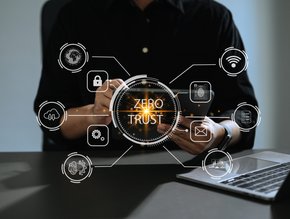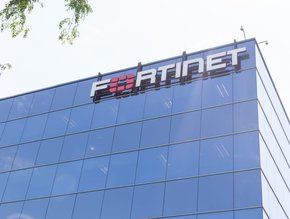Protecting the future from the biggest cybersecurity risks

Every year, October holds a special significance in the cybersecurity world. It is a unique month where industry leaders, government bodies, and cybersecurity enthusiasts come together to raise awareness about the importance of cybersecurity, share tips for safeguarding businesses in the digital world, and acquire personal best practices for securing the future.
Over the course of the month, countries host engaging cybersecurity-focused events, conferences, presentations, training programs and much more, with the primary goal of creating a worldwide awareness surrounding cybersecurity.
But as the month has drawn to a close, it is crucial for organisations all over the world to think about what they have learnt and consider how they can continue to improve cybersecurity measures when looking to the future.
Safeguarding against future DDoS attacks
According to the World Economic Forum and in an article published by Google, this year both Google and Amazon, among other companies, have successfully fought off the biggest distributed denial of service (DDoS) attack globally. However, they are cautioning internet users about the potential for such attacks to cause widespread disruption if cybersecurity measures are not improved and increased.
A DDoS attack seeks to render a website inaccessible by inundating it with data requests, often resulting in website crashes and the unavailability of online services. According to Google, the attack which started in August was 7.5 times larger than the previous most significant attack, with their site experiencing a peak of 398 million requests per second.
Cybersecurity company Cloudflare reported that the attack was three times bigger than anything it had encountered previously with over 201 million requests per second. Amazon's web services division noted that it had confronted a new form of DDoS incident.
The three companies all stated that the attackers exploited a vulnerability in HTTP/2, a newer version of the HTTP network protocol, and are now urging other businesses to update their web servers to reduce their vulnerability to such attacks.
Awareness around AI in cybersecurity
With the rise of generative AI, cybersecurity risks are likely to increase, according to a new UK government report on frontier AI. The "Safety and Security Risks of Generative Artificial Intelligence to 2025" report states that this technology will enable the development of "faster-paced, more effective and larger-scale cyber-intrusion via tailored phishing methods or replicating malware.” Nevertheless, the report does not anticipate hacking to become entirely automated by 2025.
The report identifies digital risks such as cyberattacks, online fraud, and impersonation as the most likely security threats brought about by AI, and these threats are expected to have a more significant impact than others. In general, generative AI is viewed as more likely to intensify existing risks rather than introduce entirely new threats in the near future. However, the report also suggests that generative AI will enhance the available defences against cyber threats.
Keeping updated about the cybersecurity news
Cybercrime often transcends borders, with criminals targeting individuals in foreign countries to reduce their risk of being arrested. Therefore, Cybersecurity Awareness Month serves as a global platform for raising awareness and keeping individuals, industry experts, and businesses informed about the most recent developments in the field of cybersecurity.
The expanding integration of digital technologies into a number of industries has created a range of fresh opportunities for cybercriminals to capitalise on. This is why we are starting to see greater collaboration between companies who are looking to tackle cybercrime. For example, Cisco Systems recently acquired cybersecurity firm Splunk in a US$28bn deal, its largest acquisition to date. Splunk is known for its work on data observability, which helps companies identify potential cybersecurity threats.
******
For more insights into the world of Cyber - check out the latest edition of Cyber Magazine and be sure to follow us on LinkedIn & Twitter.
Other magazines that may be of interest - Technology Magazine | AI Magazine.
Please also check out our upcoming event - Cloud and 5G LIVE on October 11 and 12 2023.
******
BizClik is a global provider of B2B digital media platforms that cover Executive Communities for CEOs, CFOs, CMOs, Sustainability leaders, Procurement & Supply Chain leaders, Technology & AI leaders, Cyber leaders, FinTech & InsurTech leaders as well as covering industries such as Manufacturing, Mining, Energy, EV, Construction, Healthcare and Food.
BizClik – based in London, Dubai, and New York – offers services such as content creation, advertising & sponsorship solutions, webinars & events.






